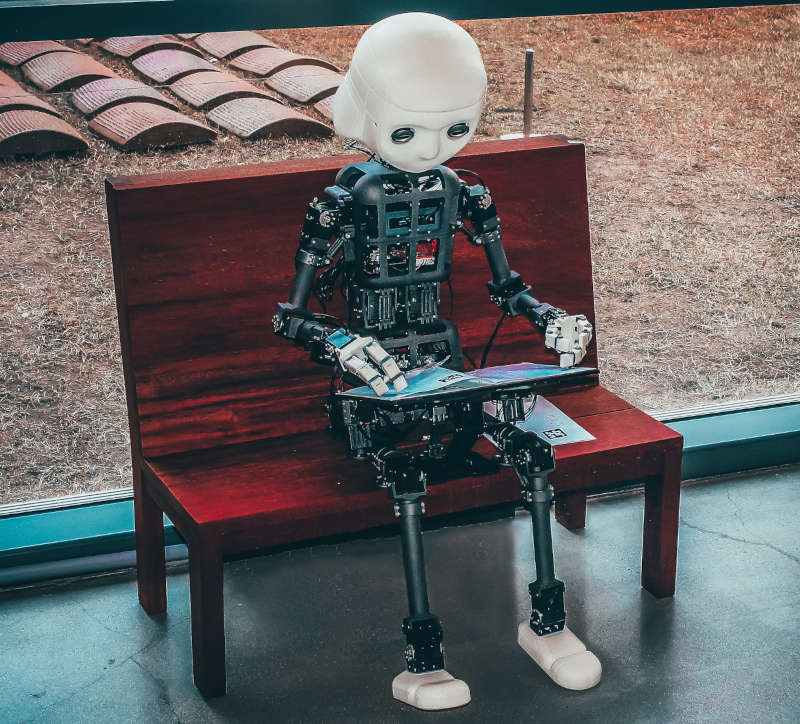Definition, Applications, and Future
Artificial Intelligence (AI) is a branch of computer science that aims to create machines capable of simulating and replicating human intelligence. Through the development of algorithms and models, AI enables machines to perform tasks that previously could only be carried out by humans. Since its inception, artificial intelligence has experienced exponential growth and has demonstrated its potential to transform and revolutionize various industries and sectors of society.
Definition of Artificial Intelligence
The definition of artificial intelligence has evolved over time. In its early days in the 1950s, the term referred to the ability of machines to perform tasks that required human intelligence, such as learning, reasoning, and problem-solving. However, as technology has advanced, AI has branched out into different approaches, such as machine learning and deep learning.
Machine learning is an AI technique that allows machines to improve their performance in a specific task through experience and without being explicitly programmed for that task. On the other hand, deep learning is based on artificial neural networks and has achieved significant breakthroughs in areas such as natural language processing and image recognition.
Applications of Artificial Intelligence
AI has found applications in a wide range of industries, driving innovation and improving efficiency in various fields. Some of its most notable applications include:
1. Virtual Assistants and Natural Language Processing (NLP): Virtual assistants like Siri, Alexa, and Google Assistant are examples of how AI has transformed the interaction between humans and computers. These systems use NLP to understand and respond to users' voice commands, facilitating information retrieval, task planning, and process automation.
2. Industrial Automation and Robotics: AI has revolutionized industrial automation, enabling the creation of intelligent robots and advanced manufacturing systems. These robots can perform complex, dangerous, or repetitive tasks with greater precision and efficiency than human workers.
3. Medicine and Medical Diagnosis: In the field of medicine, AI has demonstrated its ability to analyze large amounts of medical data, such as MRI and CT scans, to assist in early disease diagnosis and identification of patterns that doctors might overlook.
4. Autonomous Driving: AI has been instrumental in the development of autonomous vehicles. By combining advanced sensors and machine learning algorithms, self-driving cars can perceive their surroundings and make real-time safe decisions.
5. Finance and Market Prediction: In the financial sector, AI has improved market prediction and fraud detection by analyzing large volumes of financial data in real-time to make informed decisions.
6. Entertainment and Content Creation: AI has found its way into content creation, such as generating music, art, and movie scripts. It has also been used in the gaming industry to enhance the player experience and create more realistic non-player characters.
The Future of Artificial Intelligence
The future of artificial intelligence appears promising and full of possibilities. As technology continues to advance, we are likely to witness significant breakthroughs in key areas:
1. Explainable and Ethical AI: As AI becomes more integrated into our lives, it is essential to develop systems that can explain their decisions in an understandable and transparent manner. Ethical considerations in AI are also critical to ensure that its development and application are responsible and respect fundamental human values.
2. Advancements in Machine Learning and Deep Learning: Improvements in machine learning and deep learning models are expected, leading to greater accuracy and efficiency in various tasks. This will include advances in natural language understanding, computer vision, and the generation of more realistic text and content.
3. AI in Personalized Medicine: AI will continue to play a significant role in medicine, especially in the field of personalized medicine. AI algorithms could help design specific treatments for individual patients based on their genetic and health characteristics.
4. Advancements in Autonomous Driving: Autonomous vehicles are likely to become more common on roads as their safety is improved, and production costs are reduced. This could lead to a revolution in transportation and logistics.
5. AI and Creativity: While creativity has traditionally been seen as a human trait, AI has shown promising potential in generating creative content. In the future, we may see closer collaboration between humans and machines in the fields of artistic and literary creativity.
Artificial Intelligence
In conclusion, artificial intelligence has come a long way since its inception and has transformed numerous aspects of our society and economy. Its applications are becoming increasingly diverse, and its future holds exciting possibilities. However, it is crucial to address the ethical and social challenges that arise with its development and widespread adoption. Collaboration among researchers, developers, governments, and society as a whole will be key to ensuring that artificial intelligence benefits humanity as a whole.


